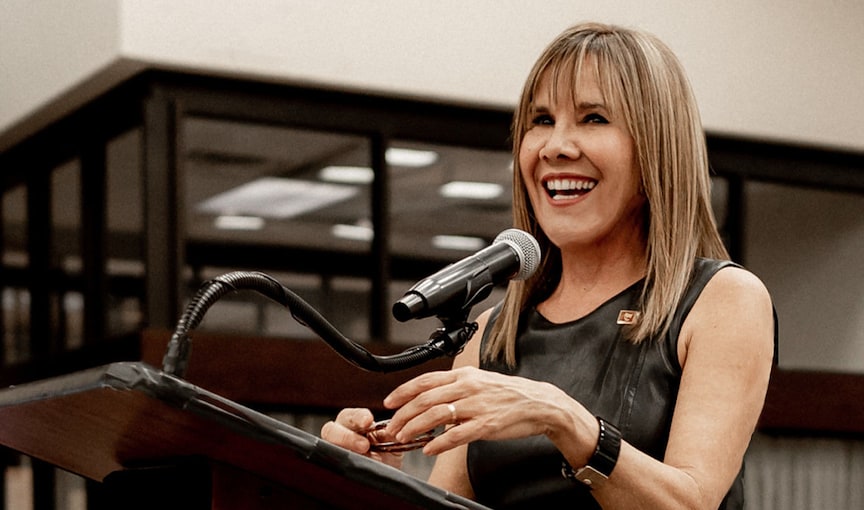Newsroom
A Personal Touch to a Digital World

by Dalia Martinez, Executive Vice President- Operations
When we think about the world of technology and its frequent users, we typically think of the younger generation - millennials and gen Zs. However, those young millennials are now approaching upward of 40 years of age and make up a large majority of the population. Adults over 60 have also turned to technology to stay in step with the rest of society.
This digital-first thinking has required companies to pivot quickly as service expectations have evolved. Consider how many things you do today online or with apps, from ordering meals to depositing checks, that only a few years ago would have required direct interaction between consumer and provider.
However, while the technological and business environment may have changed, the need for in-person connection and customer service remains steadfast. Meeting the demands of the consumer requires a balancing act.
In the banking industry, a recent FDIC study found that branch visits were prevalent even among banked households that used online or mobile banking as their primary method of account access. In 2019, about four in five (79.9 percent) banked households that used mobile banking as their primary method visited a branch in the past 12 months, and about one in five (18.8 percent) banked households that used mobile banking as their primary method visited ten or more times.
Community banks with brick-and-mortar locations offer a variety of services that align with the many milestones that customers will experience throughout their lifetimes, such as purchasing a vehicle, buying a home, starting a small business or planning for retirement - all of which help to keep the local economy healthy.
Although a growing number of financial institutions are noticing a shift toward digital banking, and some may even consider moving away from brick-and-mortar locations altogether, it is important for banks to maintain a balance to ensure customers feel secure when making financial decisions. For example, closing branches may also close off the trusting relationships that community banks have developed between customer and banker, which strongly contributes to brand loyalty. While digital alternatives are convenient, many consumers prefer to have options when it comes to navigating their financial and banking needs. By keeping customers top of mind, banks can better provide catered solutions to fit the needs of each individual.
Community banking relationships proved critical in 2020 as small business owners sought guidance while navigating the nuances and requirements of applying for, securing and obtaintaing forgiveness for the Small Business Administration's Paycheck Protection Program (PPP). Having a banker available to guide customers through the loan process helped to ensure each application was filled out quickly and correctly. In times of financial stress and uncertainty, the digital experience, while accessible, provides little comfort or expertise. For many, the ability to call upon a trusted banking professional this year made the difference in a small business owner receiving the funding necessary to keep employees on the payroll and their businesses afloat.
While online banking and mobile apps have helped meet customer demands for quick solutions to transferring money, depositing checks and checking account balances, community banks understand that some financial decisions are too large or too complex to handle from a distance. Consumers often do not feel comfortable moving forward with such commitments without consulting a known and trusted advisor.
According to American Banker, small businesses continue to value the relationships provided by community banks, which provide nearly half of the nation's small-business loans even though they hold less than 20% of banking industry assets.
As banks consider the role of technology, it is important to remember that while some human interactions can be replaced, not all of them should be replaced by a computer or smartphone. In business, like in life, strong, personal relationships can enhance any experience. In banking, relationships play an essential role in supporting the communities and families that we serve.
Dalia Martinez is Executive Vice President of Operations at IBC Bank. A long-standing member of IBC Bank's senior management team, Martinez provides customers with 35 years of banking expertise in both personal and commercial finance.









